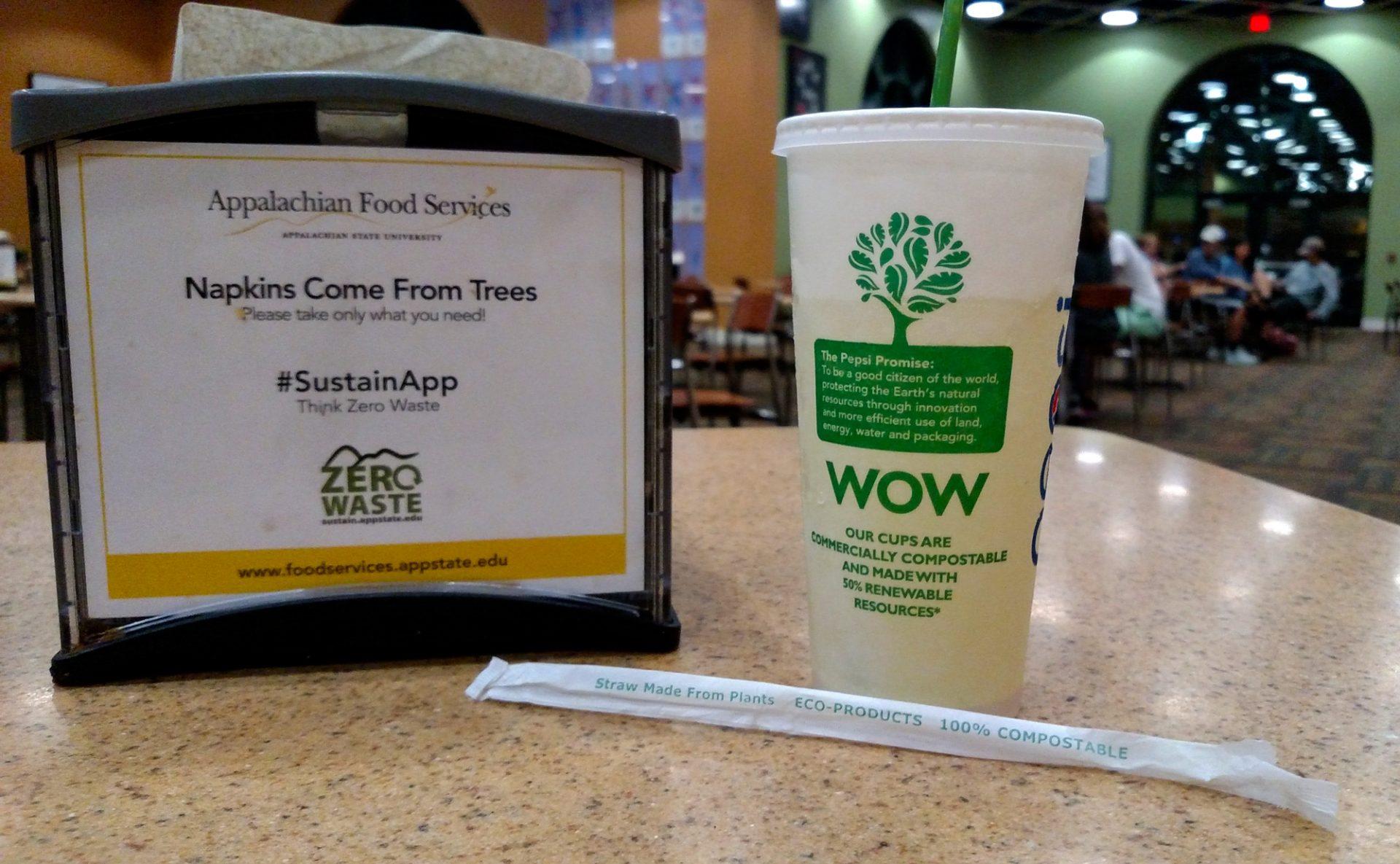Plastic straws and non-compostable cups are very harmful to the environment. In fact, they impact marine life as well. In 2015, a marine biologist, Christine Figgener, took a video of a plastic straw in the ocean being pulled out of a sea turtle’s nostril, which changed the way most people viewed plastic straws forever.
It is estimated that 500,000,000 plus straws are used and then thrown away just in the U.S. This adds an estimated 8.5 million metric tons of plastic debris in oceans every year according to the documentary “Straws” by Linda Booker.
Those facts are the reasons that dining facilities that are operated by food services on campus have changed the types of cups and straws that they use.
In the spring semester of the 2017-2018 school year, Food Services teamed up with the Office of Sustainability to sponsor a film called “Straws,” which put certain campaigns throughout the country that support more environmentally friendly substitutes to plastic straws, such as only receiving straws by request or using compostable straws, in the spotlight, Stephanie Lee, communications specialist for food services, said. There was also a discussion after the viewing of the film with the director.
“During that discussion, students seemed very enthused at the idea that this is a switch that we could make,” Lee said. “We started this off last semester by putting up signs where you could get a straw.”
The signs would read things such as, “Do you need this straw?” and would list facts about using plastic straws to aim towards the reduction of straws being used.
This past summer, Food Services and the Office of Sustainability asked their supplier about getting paper straws.
Now there are paper straws by request and there are still plastic straws to use for drinks that could not be used with paper straws, such as milkshakes and smoothies, Lee said.
“We want to empower the university with the Zero Waste mission,” Lee said. “It is also part of our mission as a department to work towards a more sustainable operation in ways that make sense for our customers and business. That’s why we have it by request.”
While paper can also be detrimental to the environment, being that it is made from trees, it is actually better than plastic straws.
“Plastic straws are made from petroleum products. A paper option can be composted if you are collecting them properly,” Jennifer Maxwell, sustainability program manager, said.
The cups this year, from the partnership with Pepsi, are also better for the environment because they are now compostable. Last year, cups that had the “Appalachian” logo on it were not compostable due to a plastic coating that would not allow them to break down in the composting facility on campus, Lee said.
In order for these new cups to be composted properly, people should not recycle or throw them away, Maxwell said.
“You should leave them on the tray and they will be collected for composting in the back of the house,” Maxwell said. “Eventually, we will offer some public collection for composting.”
Also, when objects are not properly recycled, Maxwell said most of the time they are thrown away and sent to landfills. Unless there is a special type of recycling center nearby, single-use objects, such as a plastic straw, cannot be recycled due to it being too small.
If people are ever confused about what to do with their trash, there are graphs located above the trash cans and recycling bins in the dining halls on campus. They are there to make sure everything is being disposed of properly to help Appalachian achieve Zero Waste, resulting in a healthier planet.
Story by Anna Dollar
Photo by Lynette Files
Featured photo caption: The new cups and straws at Central Dining Hall. These are part of several initiatives to make App State sustainable.


